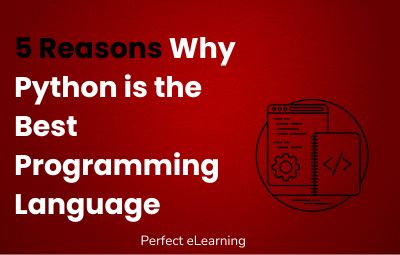

Discover the power of Python's functions! From beginner-friendly concepts to advanced techniques, dive into the world of versatile coding with this comprehensive guide.
Python is a popular programming language known for its simplicity, versatility, and readability. One of the key features that make Python so powerful is its ability to define and use functions. Functions allow programmers to break down complex tasks into smaller, reusable code blocks. In this article, we will dive into the world of Python functions, starting from the basics and gradually progressing to more advanced concepts.
1. Understanding Functions
They take in input values, process them, and optionally return a result. Functions are designed to promote code reusability, modularization, and maintainability. By using functions, you can break down complex problems into smaller, more manageable parts.
2. Function Syntax and Structure
In Python, functions are defined using the def keyword, followed by the function name, parentheses, and a colon. The function body is indented and contains the code that executes when the function is called.
3. Defining and Calling Functions
To define a function, you need to choose a unique name for it and specify the input parameters it accepts (if any).
4. Parameters and Arguments
Functions can accept input parameters, which act as placeholders for values that will be passed into the function when it is called. These values are referred to as arguments. Python allows different types of parameters, such as positional parameters, keyword parameters, and default parameters.
5. Return Statements
A return statement is used to specify the value that a function should return. When a return statement is encountered, the function stops executing and returns the specified value to the caller.
6. Built-in Functions
Python provides a rich set of built-in functions that are readily available for immediate use. These functions perform common operations, such as mathematical calculations, string manipulation, and data type conversions.
7. Anonymous Functions (Lambda Functions)
Lambda functions, also known as anonymous functions, are small, single-line functions that do not require a formal definition. They are often used when a function is needed for a short duration or as an argument to another function.
8. Function Decorators
Function decorators are a powerful Python feature that allows you to modify the behavior of a function without changing its source code. Decorators provide a convenient way to add functionality to existing functions.
9. Recursion
Recursion is a technique where a function calls itself during its execution. It allows you to solve complex problems by breaking them down into smaller, similar subproblems. Recursive functions have a base case that terminates the recursion and one or more recursive calls that solve smaller instances of the problem.
10. Scope and Lifetime of Variables
The scope of a variable determines its visibility and accessibility throughout the program. Python follows a set of rules to determine the scope and lifetime of variables, ensuring that they are available only where they are needed.
11. Function Overloading and Default Arguments
Python does not support function overloading in the traditional sense. However, you can achieve similar behavior by using default arguments and variable-length argument lists.
12. Function Annotations
Function annotations provide a way to associate metadata with function parameters and return values. They can be used to specify the expected types of arguments or provide additional information about the function's behavior.
13. Generators and Yield Statements
Generators are functions that produce a sequence of values over time. They use the yield statement to temporarily suspend execution and return a value. Generators are memory-efficient and allow for lazy evaluation of results.
14. Closures
Closures are functions that remember the environment in which they were created. They can access and modify variables from their enclosing scope even after the outer function has finished executing.
15. Best Practices for Writing Functions
To write effective and maintainable functions in Python, it's important to follow certain best practices. These include using descriptive names, keeping functions short and focused, adding docstrings, and writing test cases.
Conclusion
Python functions are a fundamental building block for creating efficient and organized code. They allow for code reuse, modularization, and abstraction of complex tasks. By mastering the concepts covered in this article, you'll be well-equipped to harness the full power of Python's functions and write clean, efficient, and scalable code.
FAQs(Frequently Asked Questions)
Q1. What is the purpose of functions in Python?
A1: Functions in Python are used to break down complex tasks into smaller, reusable code blocks. They promote code reusability, modularization, and maintainability.
Q2. How do I define a function in Python?
A2: To define a function in Python, you use the def keyword followed by the function name, parentheses, and a colon. The function body is indented and contains the code that executes when the function is called.
Q3. Can functions in Python return multiple values?
A3: Yes, functions in Python can return multiple values by using tuples or other data structures to hold the values.
Q4. What are lambda functions in Python?
A4: Lambda functions, also known as anonymous functions, are small, single-line functions that do not require a formal definition. They are often used when a function is needed for a short duration or as an argument to another function.
Q5. What are function decorators in Python?
A5: Function decorators in Python allow you to modify the behavior of a function without changing its source code. They provide a convenient way to add functionality to existing functions.
Perfect eLearning is a tech-enabled education platform that provides IT courses with 100% Internship and Placement support. Perfect eLearning provides both Online classes and Offline classes only in Faridabad.
It provides a wide range of courses in areas such as Artificial Intelligence, Cloud Computing, Data Science, Digital Marketing, Full Stack Web Development, Block Chain, Data Analytics, and Mobile Application Development. Perfect eLearning, with its cutting-edge technology and expert instructors from Adobe, Microsoft, PWC, Google, Amazon, Flipkart, Nestle and Info edge is the perfect place to start your IT education.
Perfect eLearning provides the training and support you need to succeed in today's fast-paced and constantly evolving tech industry, whether you're just starting out or looking to expand your skill set.
There's something here for everyone. Perfect eLearning provides the best online courses as well as complete internship and placement assistance.
Keep Learning, Keep Growing.
If you are confused and need Guidance over choosing the right programming language or right career in the tech industry, you can schedule a free counselling session with Perfect eLearning experts.


